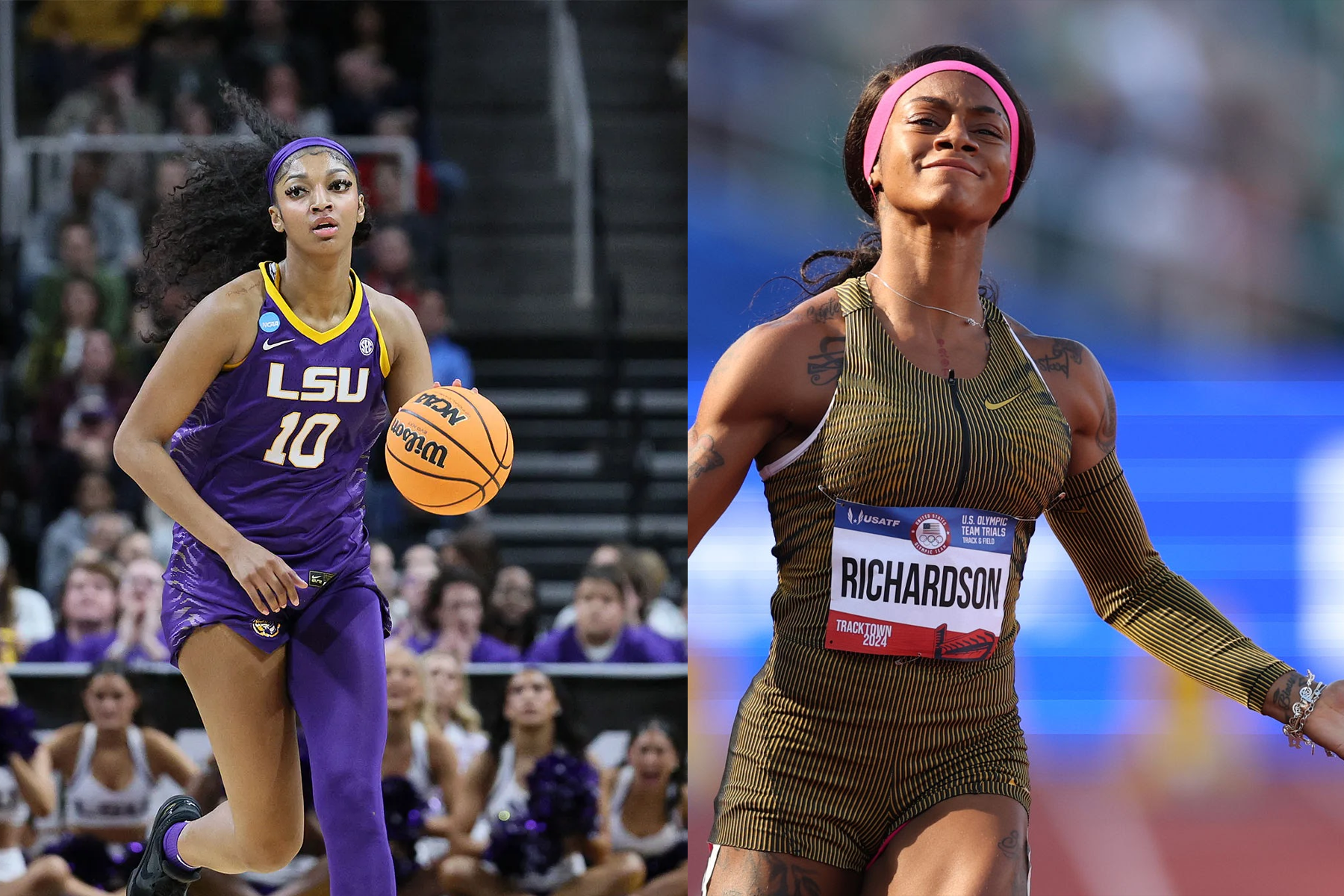In the world of sports, media coverage often shines brightest on athletes’ accomplishments, yet for Black athletes, it frequently casts a shadow of bias and scrutiny based solely on race.
The media’s portrayal reveals persistent inequalities that Black athletes face beyond their performance.
This scrutiny isn’t just limited to commentary, it extends to how Black athletes are represented in headlines, interviews and analysis wherein negative stereotypes and coded language often overshadow their achievements. By focusing disproportionately on issues like ‘attitude’ or ‘discipline,’ the media perpetuates harmful narratives that reinforce racial biases.
The Angel Reese and Caitlyn Clark showdown during the 2023 NCAA Women’s Basketball championship highlighted significant disparities in media coverage and public perception of Black and White athletes. Reese, a Black player from LSU, faced harsh criticism for her celebratory gestures, with some labelling her actions as “classless.” In contrast, Clark, a White player from Iowa, had previously made similar gestures without facing comparable backlash.
This kind of racism is a clear example of microaggressions — subtle, often normalized forms of prejudice that reinforce harmful stereotypes. Over time, society has grown accustomed to casting Black individuals as aggressors, regardless of the context. This automatic labelling isn’t just a casual oversight; it reflects deeper biases that unjustly position Black people as confrontational or unruly, further entrenching racial divides.
In the lead-up to the 2021 Tokyo Olympics, Black track runner Sha’Carri Richardson was disqualified after testing positive for marijuana, resulting in a one-month suspension that excluded her from the Olympic roster. Richardson explained that she used marijuana as a coping mechanism following the recent death of her biological mother, emphasizing that this was not an excuse but an explanation for her regretful actions.
Alternatively, in the lead-up to the 2022 Beijing Winter Olympics, Russian figure skater Kamila Valieva, then 15, tested positive for trimetazidine, a banned heart medication known to enhance blood flow. Despite this, the Court of Arbitration for Sport (CAS) ruled that she could continue competing during the investigation, citing her status as a minor, or “protected person,” which subjected her to different regulations than adult athletes.
These contrasting decisions sparked public outcry and raised questions about equity in the enforcement of anti-doping policies, especially given the significant differences in their respective consequences. Richardson, an adult Black athlete, was quickly disqualified despite her openness and explanation regarding her personal circumstance, while Valieva, a White minor, was allowed to continue competing despite testing positive for a performance-enhancing drug.
The trope of the “angry Black woman” has left a lasting, harmful impact on Black female athletes. Rooted in portrayals dating back to the 1930s, this stereotype casts Black women as domineering, reducing them to caricatures rather than individuals. This label persists in modern sports, where talented athletes like Serena Williams frequently endure criticisms rooted not in their performance, but in judgments about their demeanour.
The treatment Serena Williams endured during the 2018 U.S. Open final reveals the persistence of the “angry Black woman” stereotype. When Williams responded with frustration to what she perceived as unfair calls from the umpire — including a code violation for coaching, a penalty for breaking her racquet and a game penalty for calling the umpire a “thief” — the reaction from officials and media alike was harsher than what other players face. While other athletes have expressed anger in the heat of competition without lasting repercussions, Williams was quickly penalized with a fine of $17,000.
Media coverage has often scrutinized Williams’ demeanor and physicality in ways that reinforce negative stereotypes. For instance, descriptions of her contrast sharply with the more favourable language used to describe her White counterparts who’ve exhibited similar behaviors. Such heinous attitudes not only take away from achievements but also reflect broader issues of racism and sexism in sports.
These instances highlight the ongoing challenges Black athletes face in combating prejudiced narratives that seek to diminish their accomplishments and personhood.
In a world where sports should celebrate talent above all else, Black athletes continue to battle biases that diminish their talent and question their character. These ongoing narratives not only reflect ingrained societal prejudices but also call out the need for media outlets to recognize athletes for their skills and resilience with coverage free from stereotypes. True progress demands a commitment to equity that goes beyond words — a transformative change that uplifts voices, recognizes the full humanity of athletes and ensures their legacies are defined by their excellence.

